The Theatre of the Future
In the future, this will all be under water. Old definitions will be drowned out, new and buoyant ones will float.
The term “theatre”—or the idea of it—will encompass the full spectrum of performance and its possibilities. It will include dances without people, actors without words, visual arts installations, object theatre, high technology and gaming, choose your own adventures, one-on-one interactions, flash mobs, high-sensory interactions, rock concerts, radio shows, Broadway spectaculars, stories told in living rooms and fire-lit caves, full and all-consuming environments that will engulf you, one-minute gestures that will change you.
The work will be idiosyncratic, expansive, and could not be replicated in any other experience or medium. It will not replicate reality but instead turn it on its head to tell us deeper truths.
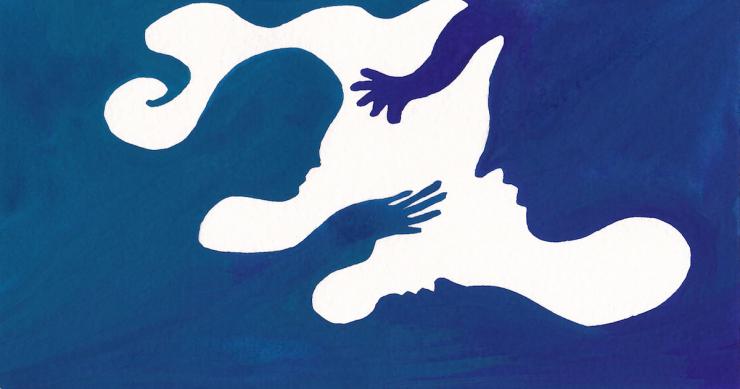
There will be no titles of playwrights, directors, actors, designers, managers, producers. There will be theatremakers. That will be all that is allowed on a name card. “Theatremaker.” People you meet will include a writer/designer. A director/electrician. A sculptor/actor. A film editor/musician. A cook/dramaturg. A plumber/poet.
I think about the work of Richard Maxwell, Young Jean Lee, and Guillermo Calderón in Chile, who are, at first glance, writers/directors. To me they are instead theatremakers—creating total experiences of theatre that cannot be recreated anywhere else, in any other setting.
The notion of authorship, sole authorship, will change rapidly. Theatre will be made in duos, like Big Dance Theater’s Annie-B Parson and Paul Lazar; in trios, like Alec Duffy, Rick Burkhart, and Dave Malloy in Three Pianos; in ensembles and collectives, like the Rude Mechs, Universes, and SITI Company—where you will not be able to see the edges of creation, generation, and execution. Theatre will be performed and generated by machines, like how New York director Annie Dorsen takes the famous television debate between the philosopher Michel Foucault and linguist and activist Noam Chomsky from the seventies as inspiration and material for a dialogue between two specially developed chatbots: every evening, these computer programs, designed to mimic human conversations, perform a new—as it were, improvised—live text.
Theatres will have to turn into cultural centers, gathering places for the community. They will continue to open their doors to the outside world and deepen the dialogue between arts, culture, and society, bringing the arts back to the table of civic discourse, leading the conversation in society, instead of having a conversation with ourselves.
Theatre will be performed by audiences—as in Rotozaza’s Etiquette—where two participants sit across from each other at a cafe table, listening to instructions over headphones, moving around objects and participating in the enactment of a narrative. Or as in Gob Squad’s Kitchen, where the collective attempts to recreate Andy Warhol’s underground movies, where, by the end, the four performers are replaced by four audience members on stage, participating in this quirky meditation of the unknowability of the past and optimism for the future.
Theatre will be made by and for audiences. They can create and choose their own narratives—like in Sleep No More, coming to New York in March, where three hundred audience members roam a ninety-three-room installation of the Scottish Play, where they can chase after characters, follow plotlines, roam in Lady M’s closet inches from Lady M herself, and open drawers and read.
But, more significantly, we are at a sea change in terms of what might be perceived as us the theatre versus them the audience. I quote Ben Cameron, from the Doris Duke Charitable Trust, who spoke so beautifully at Under the Radar this January, who compared the religious reformation in the fifteenth century and our current arts reformation—
which is dramatically shaped by new technologies and a massive redistribution of knowledge. With the means for cultural and artistic production and distribution having been democratized. There is a term, pro-am, amateurs who are doing work professionally—a group expanding our aesthetic vocabulary, even as they assault our traditional notions of cultural authority and undermine the assumed ability of traditional arts organizations to set the cultural agenda.
With increasing interactivity and participation from audiences who are no longer satisfied to be on just the receiving end, content changes. Form changes. Authorship changes.
***
And as water has to always take the shape of its container, theatre will become increasingly about place.
Theatres will have to turn into cultural centers, gathering places for the community. They will continue to open their doors to the outside world and deepen the dialogue between arts, culture, and society, bringing the arts back to the table of civic discourse, leading the conversation in society, instead of us—artists—having a conversation with ourselves. More theatre will have bars. Real bars, not just beer and wine, but actual bars.
Theatre buildings will change, they have to. People will create theatres that can respond creatively and organically to the art that goes on inside them. More and more—bars, museums, parks, living rooms, roof decks, libraries, basements, galleries, cars—will becomes sites for performances. Theatre will be taken to the audience, a way to interrupt their daily perspectives, a way to see a space anew.
Theatre will be local. We will no longer casually import theatremakers from big cities into other cities to make work that artists in their own city can. It is no longer responsible environmentally or artistically for that matter.
Theatre will be local. We will no longer casually import theatremakers from big cities into other cities to make work that artists in their own city can. It is no longer responsible environmentally or artistically for that matter.
New ways of thinking of artistic exchange will emerge. One example is Ciudades Paralelas, a form of traveling festival. Lola Arias and Stefan Kaegi invited artists to devise interventions in public spaces—functional places like hotel rooms, factories, shopping centers. As observation stations for situations, the projects make stages out of public spaces used every day. Projects are staged in Berlin, Buenos Aires, Warsaw, and Zurich—in each city with local performers—and are created by local artists.
Theatre will need to become about less waste. Climate change will be part of the discussion in the creation and presentation of the play because it will increasingly insist upon it. There will be no more disposable sets. It will no longer be cheaper to throw something out than to store it. Theatres will account for carbon emissions and pay for carbon offsets. We will have to create with less, and be more creative.
Speaking of recycling, shows can no longer go up for six weeks and disappear forever. I think more festivals will emerge—which will be homes for emerging new work—that cannot sustain six-week runs but are vital nonetheless in the theatre landscape. There is a small movement of experimental theatre festivals including Portland’s Time-Based Arts, Philly Live Arts, and Fusebox in Austin that manage for two to three weeks to place cutting-edge art and ideas at the center of the city—changing the dynamic of the cultural dialogue within the city.
And in the same breath I will say that theatre will be global. I think that the artist and the individual are the true and effective unit of cultural exchange and political change.
I am always amused when I am asked to speak to my views on the American theatre, since I possess neither citizenship nor a green card. (I am a legal alien from Singapore.) Definitions of nation, language, and ethnicity will be continually turned over and investigated in the coming years, both in our society and in our theatre. I believe that borders, both artistic and national, will become increasingly porous as artists will move in and out of countries and cities—reflecting a global interconnected world. I cautiously hope that the immigration and tax systems will be able to keep up and change fast enough.
I think we will have increasing relationships with China, Latin America, and the Middle East, and we will need to respond to those relationships. I think about Mike Daisey, who has been sponsored by the state department and through his own indomitable efforts been to the far reaches of the world, from Tonga to the heart of industrial China, bearing witness to changing social and political phenomena and bringing back the stories to us. One person’s richly observed examinations have made the political stories personal.
I think about the recent developments with our friends from the Belarus Free Theatre, who have brought us stories of oppression and hope from their country—having escaped under the cover of night to perform their piece Being Harold Pinter, a performance that juxtaposed Harold Pinter’s Nobel Prize acceptance speech, scenes from his late plays, and testimonies from Belarusian political prisoners to shed light on the effects and fallout of the authoritarian regime of Lukashenko. Theatre is their activism, and it is their form of protest.
It is truly humbling to contemplate this, that these are artists literally willing to die for their art.
But it is only through performance, and being in the same room as these astonishing artists, that you can feel how theatre can move the body politic, one room at a time.
As we reel from talking about changes, and institutions and models, and funding, and diversity in the coming days, I hope that we will remember to start always with the art. This art form that is immediate, expansive, mythical, powerful—with the power to change and be changed.
People will always crave bodies sweating in the room. Stories will always need to be told. Audiences will be in performances, where they will crave being asked to be still and be present. To gather and to listen deeply.

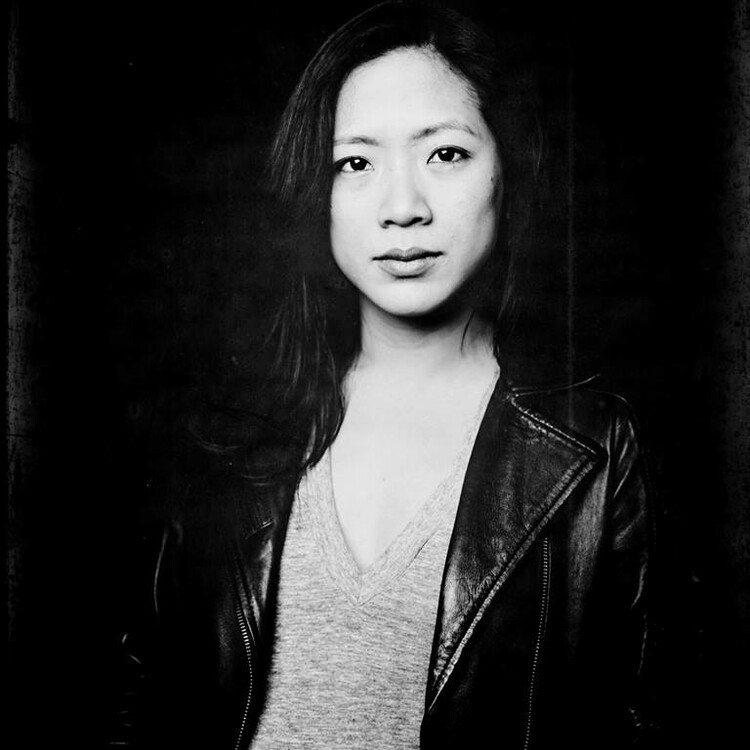

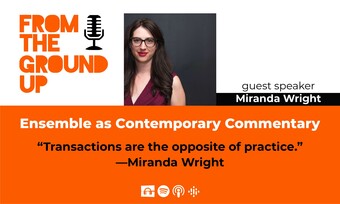


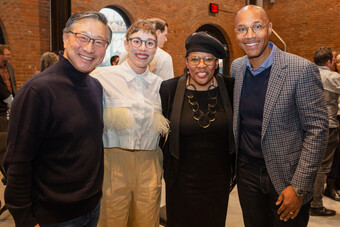

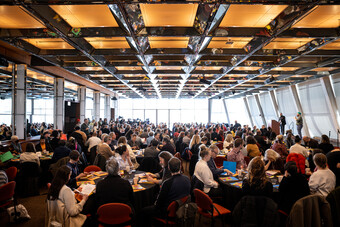

Comments
The article is just the start of the conversation—we want to know what you think about this subject, too! HowlRound is a space for knowledge-sharing, and we welcome spirited, thoughtful, and on-topic dialogue. Find our full comments policy here
My much-delayed (apologies) response to your thoughts, Meiyin, are now up on my blog:
http://www.suilebhan.com/20...
I hope I haven't mis-interpreted the intent of your piece in any way; I'd surely like to have a conversation about our differences.
Thanks Meiyin for this very clear midstream assessment of our art's evolution. I believe the Reformation you refer to has a great deal to do with our shifting economy, which is buoyed by a phantom monetary system. Theatre depends on a cultural exchange that can be backed by presentation, and as Joe Papp said, "There's a place for everyone in the theatre."
The form's ability to integrate diverse skill sets makes it an umbrella entity (although the organizing structure to support this efficiently hasn't emerged quite yet) for re-forming America's workforce if a more sustainable itinerant circuit (like Vaudeville) can keep ensemble's moving. It makes sense to me that a service-based economy would evolve into a performance-based economy... kinda gives a twist to the term "Floating Exchange Rate", huh?
Wellness,
Josh Adler
Artistic Director
TReE
TReEPlays.org
I struggled for many years to identify myself as a particular theatrical artist "director," "actor," etc ( always with the caveat, "but I am certainly not a playwright"). I considered this to be a self-conscious/overly-modest internal-wrestling match, until I realized precisely what you state here: I am a "theater maker." It was not insecurity but rather dissatisfaction behind it all. I now enter the new phase of struggle, and that is explaining not only myself but my company (an ensemble of theater makers) and the way we work (collaborative co-authorship and devising). It is pieces like yours Meiyin that provide me context and inspiration. Thank you.
Rachel Grossman
Co-Founder and a Ring Leader of dog & pony dc
and
Connectivity Director at Woolly Mammoth Theatre Company
Thank you for this eloquent manifesto Meiyin. The age of the mash-up is upon us. Sink or swim.
Clyde Valentin
Hip-Hop Theater Festival
Thank you, Meiyin, for writing this eloquent vision of a theater in the future, which in many ways is already present. My hope is that these pioneers that you mention in this article here--many of whom who operate within their own rules, with their own conventions--will have an affect on the material resources of the theater community as a whole. Currently, the model of "professional theater" still assumes a clean and distinct separation of author, director, producer, performer. Increasingly, the most exciting live theater work is blurring these distinctions, or in some cases, destroying them completely. More theaters are being formed where members of the company where multiple hats; does anyone in a theater company in the US today ONLY act, or ONLY direct? More often than not, people are juggling multiple roles, and often out of necessity rather than choice.
However, as you describe, such adversity can sometimes inspire innovation and creative invention. Hopefully more resources will be provided for these artists around the country and around the world. New artists are emerging, of course; but the old models are still in place, for the most part.
Change is always painful, while it is happening. But hopefully the pain will be viewed in the context of the birth of a new community, a new landscape, a new way of working, coupled with this new way of seeing. Observing closely the work of the pioneers you cite who are valiantly doing their work, on their own terms, no matter what, are role models and case studies of how to implement this new future world today.
Best,
Brendan McCall
Founder & Artistic Director
Ensemble Free Theater Norway